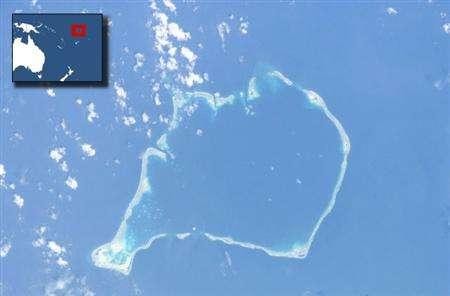Scientists have been warning people all over the globe against rising sea levels' threat to low-lying nations, but a recent research found out that a certain South Pacific atoll is contradicting predictions of oceans swallowing up island nations.
Researchers from New Zealand and Australia have found out that despite seeing high rates of sea-level rise in the past six decades, Funafuti Atoll has actually enlarged, the Geology journal reported.
Despite the rise's magnitude, no islands were lost. In fact, most of the islands have enlarged with a 7.3 percent increase in the island's net area in the past one hundred years. No evidences of heightened erosion have been recorded in the last 50 years while sea-levels were rising speedily.
Scientists from New South Wales University and Auckland University studied 29 islands in the Funafuti Atoll in a span of 118 years in order to see how the increasing sea levels are affecting the islands.
Paul Kench, lead author from Auckland University, has found out that the reef islands are growing. Islands like Kiribati, Tuvalu, and Micronesia have enlarged because of sediments, land reclamation, and coral debris, the ABC Australia reported.
In 2010, Kench shared with ABC, "Eighty percent of the islands we have looked at have either remained about the same or, have in fact, gotten larger. A few of those island nations have gotten dramatically bigger, by 20 or 30 percent."
Since the islands are low-lying, extreme wave events crash straight into them, transporting with it sediments from adjacent reefs and beaches. Despite the state of being unaffected by the increasing water levels, Kench has emphasized that it is still unclear if humans could inhabit the islands if global temperatures rise, continuously.
Funafuti Atoll is a reef island that encircles a 9-mile wide, 11-mile long lagoon, accommodating 6, 000 people.



























